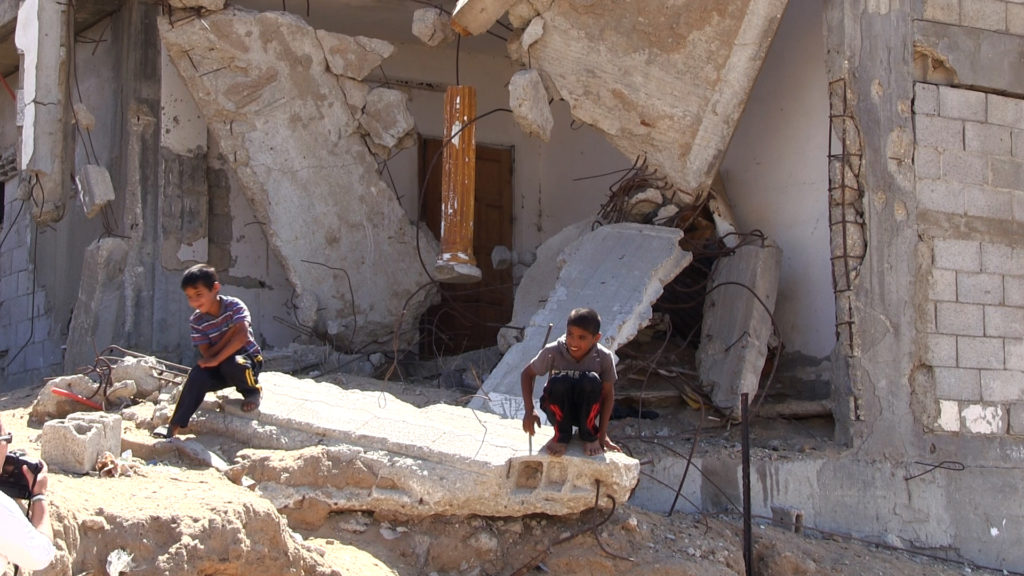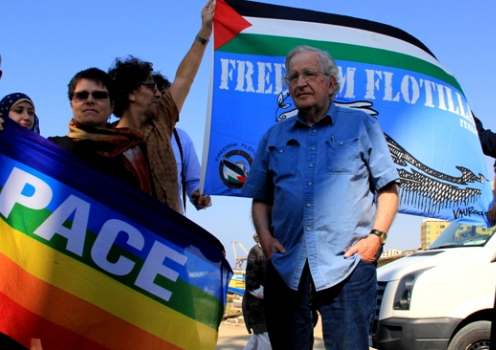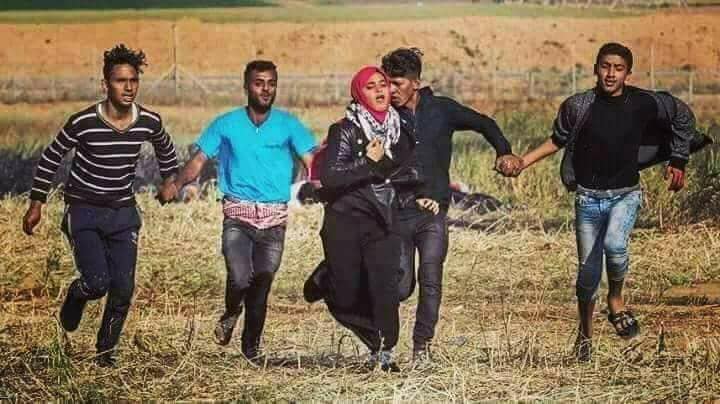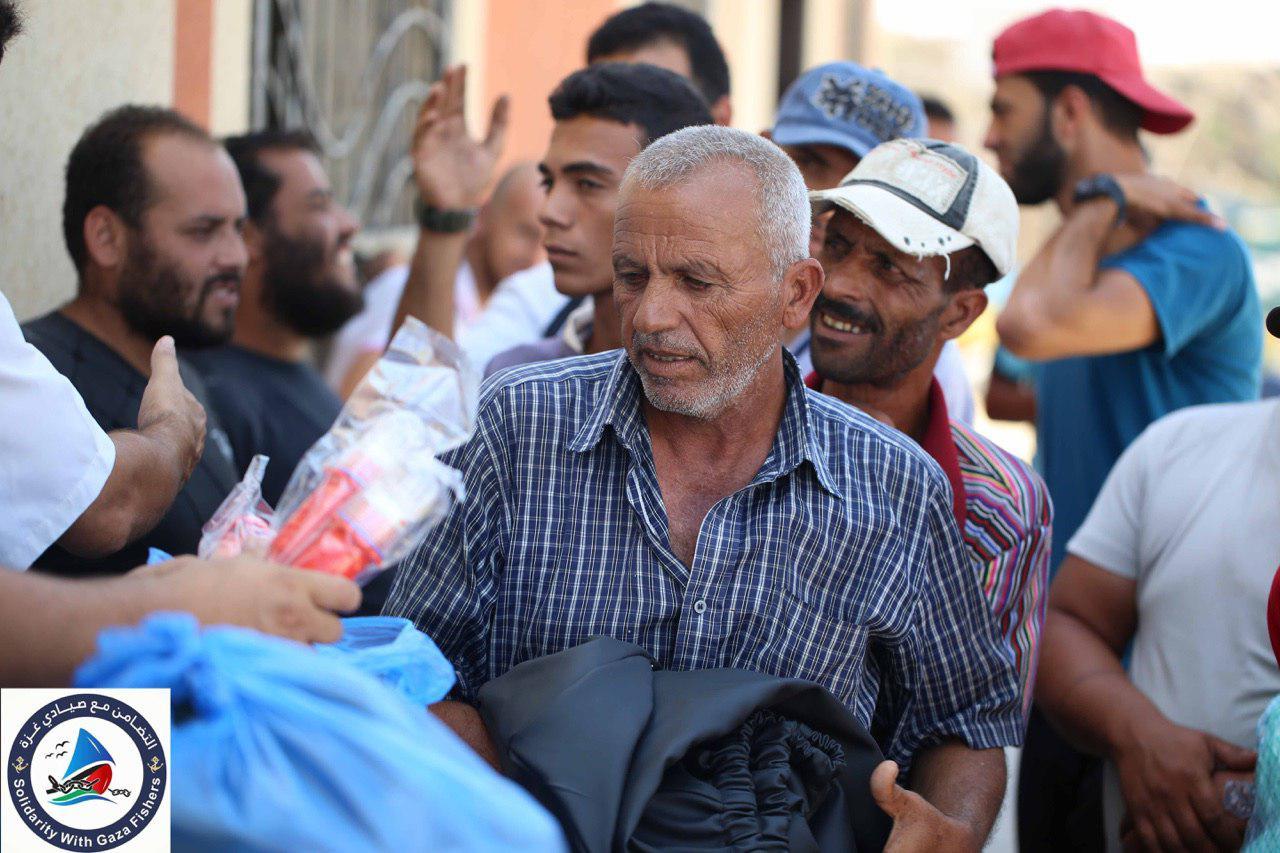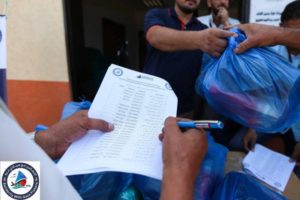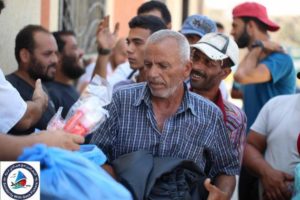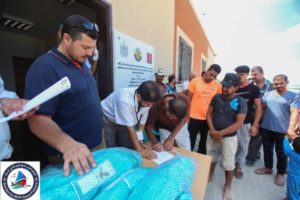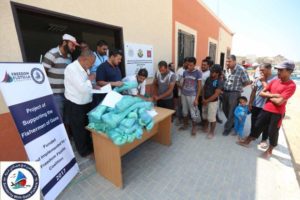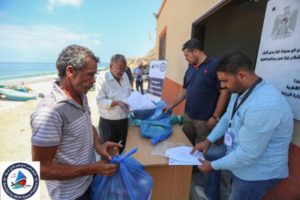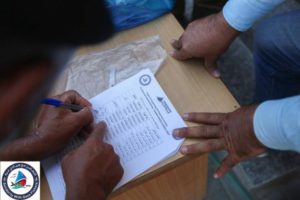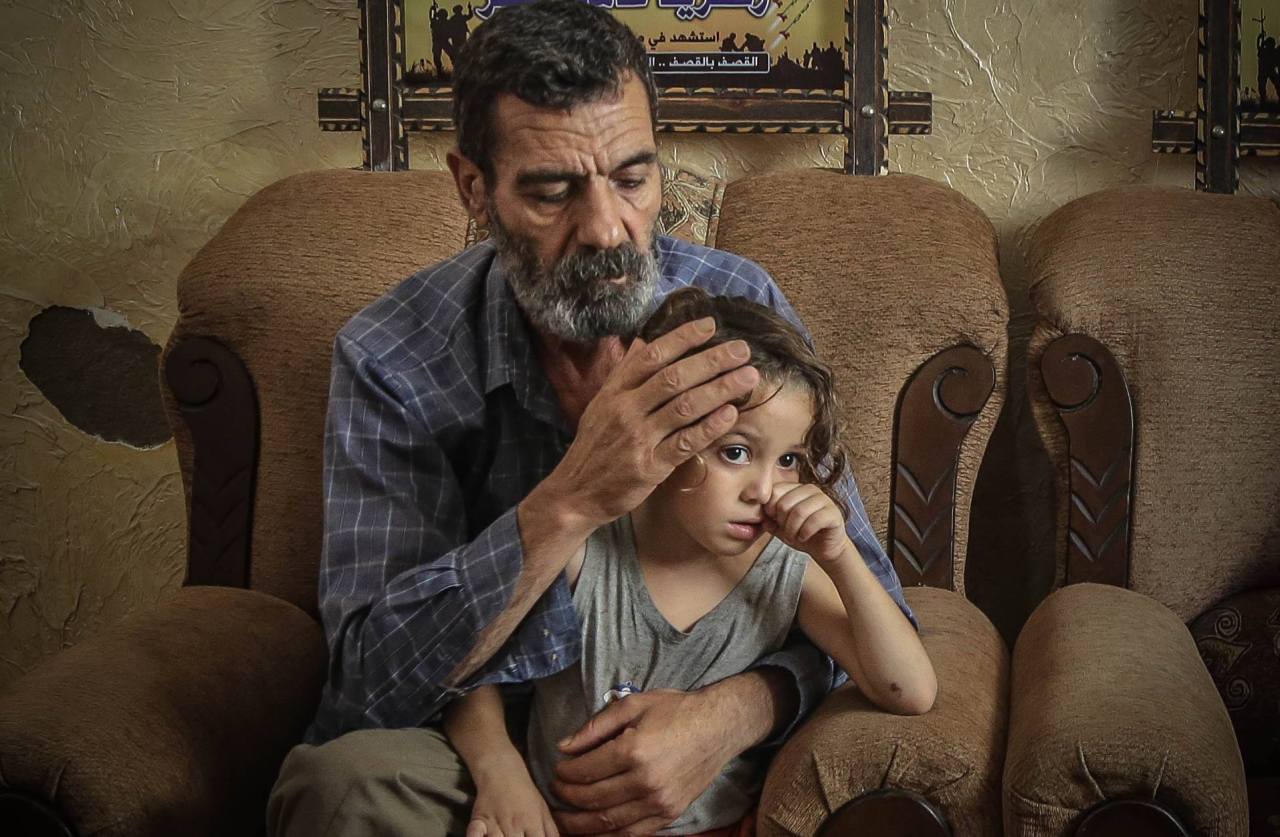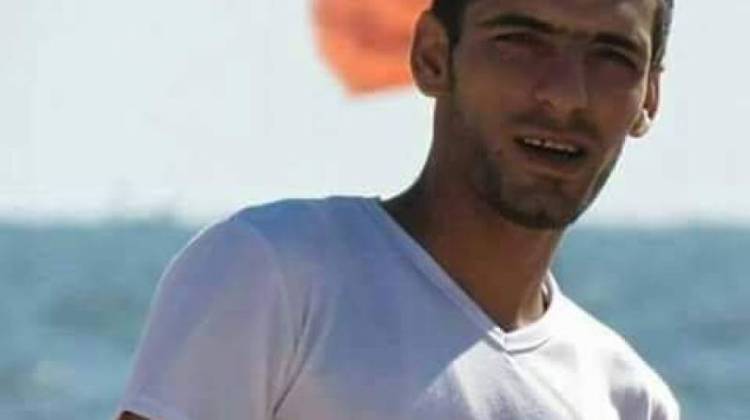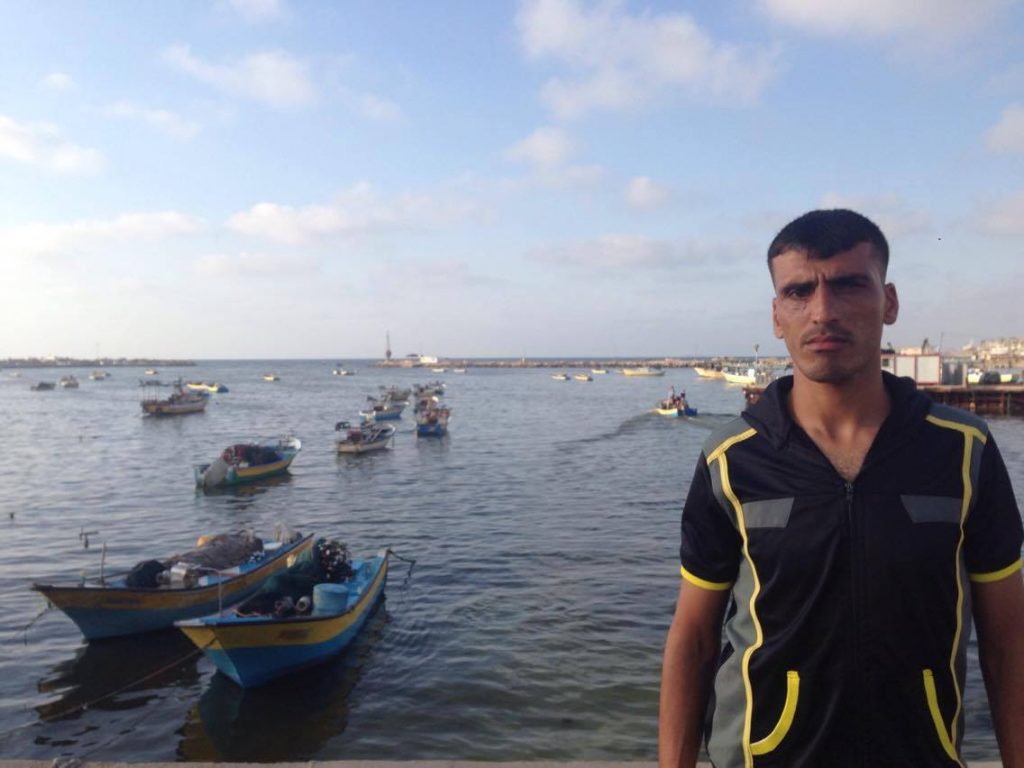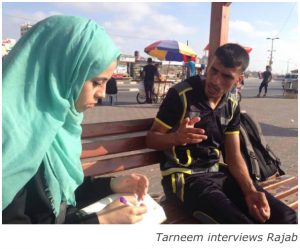Ten years ago today the Canadian ship Tahrir and Irish sister ship Saoirse set sail to challenge the Israeli blockade of Gaza. Our commitment to ending the inhumane blockade is as strong ever : once COVID19 conditions permit we will challenge the blockade again with our Freedom Flotilla Coalition partners – because as long as governments fail, we’ll continue to sail. Stay tuned for more news.
All posts by Canadian Boat to Gaza
Already unliveable: Help the Freedom Flotilla sail against the inhuman blockade of Gaza
Dear Supporters,
In 2020, the Freedom Flotilla Coalition will sail again to break the illegal and inhuman blockade of Gaza. During this mission we will be focusing on children and youth struggling to survive in the wreckage of Gaza, their beloved home. Canada Boat to Gaza is reaching out to children and youth organizations, and to individuals like you, to help support our work and to bring an end to the suffering in Gaza.
Eight years ago in 2012, the UN declared that Gaza would be uninhabitable by 2020. Over the years, the international community has watched that prediction become truth. Palestinians in Gaza live among bombed out hospitals, schools, and homes. There are water, food and electricity shortages throughout the beleaguered strip making basic survival a serious challenge. The desperate economic situation in Gaza also means that children have to think and act as older than they are, with too many of them working to help support their families.
The most vulnerable of the innocent are children and youth, many of whom have been deliberately targeted by Israeli snipers since the beginning of the Great March of Return, when Palestinians demand their right to return to their homeland from which Israel expelled them. Israeli snipers have murdered at least 256 Palestinians in these peaceful protests, and more than 29,000 have been maimed for life, many of them children and youth. Please watch and share this award-winning short video about one of them, Dreams in the Crosshairs, created by one of our Palestinian partner organizations in Gaza, We Are Not Numbers, with funding from the Freedom Flotilla Coalition.
The world expresses outrage and yet the slaughter and deliberate destruction of Gaza continues with impunity. In November 2019, after a three day Israeli offensive on Gaza, Palestinian Health Minister, Dr. Mai al-Kaila, reported that one-third of the Palestinians killed by Israeli missiles and shells were women and children.
It seems clear that Israel is systematic targeting Gaza's future, its children and youth. Imagine if this was happening in your hometown. Imagine if it was your child who was permanently maimed for peacefully protesting human rights violations. Would the world still be silent? Would you want others to speak up against these attacks?
Will you help us sail this year? Together we can help end the blockade! Read and share our last message (Why we Sail, and Sail and Sail Again) on the Canadian Boat to Gaza website.
Many of you will be hearing this week about the "Steal of the Century" proposed by the US President. We remind everyone that without justice, there can be no peace, and so we encourage you to read, share and amplify Palestinian responses in your communities and around the world, including this "Appeal of the Century" from We Are Not Numbers.
A critical way to help our campaign is to contribute financially. There are different ways you can make a donation. Click here to donate. We ask you to consider a monthly donation. We are pleased to accept e-transfers from Canadian bank accounts (Interac) or online using a major credit card or PayPal account. You can also donate by cheque or money order and mailing to Canadian Boat to Gaza, PO Box 1950, London Stn. B, London, Ontario N6A 5J4, CANADA. In other countries, please consider donating through one of our Freedom Flotilla coalition partner campaigns : https://jfp.freedomflotilla.org/donate
Why We Sail, Sail, and Sail Again: Freedom Flotilla 2020
Freedom Flotilla sailors and participants are sometimes asked: Why do you keep sailing toward Gaza only to be captured? Why not give the funds you raise directly to the Palestinians of Gaza as aid? Our rationale for sailing and our experiences in 2018 provide some answers. Our Palestinian partners in Gaza are asking us to challenge the illegal blockade. In May 2018 the Norwegian fishing trawler Al Awda (The Return) and the Swedish sailing ship Freedom sailed from Scandinavia. Over two months, we called on ports in Denmark, Germany, Holland, England, France, Spain, Portugal and Italy spreading the message of freedom for Palestinians. Israel has extended its reach, pressuring governments in Cyprus,Turkey, and Greece to prevent our ships sailing from their ports.
Canadians Karen DeVito and John Turnbull joined the sailing ship Freedom in Denmark and crewed her from Copenhagen to Palermo where John then captained the ship on the final leg toward Gaza. Other Canadians, including Heather Milton-Lightening, Ron Rousseau, Majed Khraishi, Kathy Wazana, and Larry Commodore of the Stó:lo Nation, were on board Al Awda at different points in her voyage, and Canadian journalist Dimitri Lascaris reported for The Real News Network from Flotilla boats and from several ports.
The arrival of the ships at each European port occasioned special events, marches, music, speaking opportunities, as well as visits with municipal and provincial politicians. In some places cities and regions had passed motions to support the Flotilla and recognize Palestine. In Amsterdam, activists organized a small-boat Flotilla through the canals with music, banners and flags. Supporters followed along the canals and bridges handing out hundreds of flyers. Brighton, England gave a rousing welcome on the pier, held an information event in a local park, and a packed house speaking event in the town. Gijón, Spain held a march through the city with about 800 people with music, dancing, singing and a Palestinian flag that required 40 people to parade it through the streets. The City Council of Cádiz, Spain voted the Flotilla "Illustrious Visitor." Two smaller Swedish sailboats crossed Netherland, Belgium and France by river and canal, catching public interest when authorities prevented them from mooring in Paris, and visited a number of other waterside communities.
Energizing local solidarity groups, providing outreach and diplomacy are all aspects of the Flotilla's work. The voyage around Europe is so valuable in these respects. We also discovered that refugees would visit our ships at each port. The mayors of three Italian ports met our ships at the piers and declared refugees welcome to their cities, regardless of their then-Prime Minister's negative attitude. Our crew met with local and provincial politicians, ambassadors– they attended regional parliamentary sessions, municipal meetings and gave presentations to the public as well as tours of the boats. All these activities are part of why we sail.
Palestinians in Gaza are now more than ever connected with the rest of the world by the internet. They know when the Freedom Flotilla is coming; they go to the seashore and wait. We are answering a civil society call when we sail–when we ask our partner organizations in Gaza if they would prefer a donations over a Flotilla, they always respond saying we should to sail and raise international awareness about the blockade. They prefer we expand awareness of the longest running occupation in modern history. They also tell us that our sailing gives Palestinians hope and the knowledge that they are not alone.
The Flotilla movement has launched successful legal challenges to Israel for improper confiscation of our ships. One recent court victory by Ship to Gaza Sweden provided the funds for purchase of the Freedom and two smaller sailboats that travelled through France to the Mediterranean. And so Captain John, when interrogated on the way to an Israeli prison, was pleased to answer this question: "Did a terrorist organization provide your funding?" with a solid "Yes!". Then to the question "Which one?", John replied: "The Israeli government."
The Freedom, aside from its main cargo of hope, also carried some medical aid that Israel is required to deliver. To date our 114 boxes remain in Israel, awaiting delivery to Gaza. While these medical supplies were not a significant quantity, they provide another opportunity for ongoing legal action in Israeli courts against the blockade.
The Flotilla will sail again in 2020, at the request of Palestinians of Gaza. This is the year the UN report declared that Gaza will be unliveable. Right now, most of its drinking water is contaminated. Every child shows symptoms of psychological distress. Each Friday Palestinians stand on their own land near the fence asking for their human rights as Israeli snipers shoot them. In 2018 the IDF has killed 254 people in Gaza, 47 of them children. Thousands have been injured; many amputations have resulted.
There are shortages of medicine in Gaza. Children go to school in shifts. Many are orphaned. Israeli drones fly overhead day and night. Hospitals are overwhelmed, especially on Fridays. Last summer we met young Jamil from Gaza in an Italian port; his mother had applied to Israel for permission to take him there for medical treatment. During the years of waiting he had survived on blood transfusions from his grandfather. He must return once his rare blood condition is treated. We saw the worry in his mother’s eyes. Gaza is hazardous even for a healthy child.
And so the flotilla will sail again in 2020, even more mindful this year of the children of Gaza and the tenth anniversary of the attacks on the Mavi Marmara and other Flotilla vessels in 2010.
One critical way to help this campaign is to contribute financially. There are different ways you can make a donation. Click here to donate. We ask you to consider a monthly donation. We are pleased to accept e-transfers from Canadian bank accounts (Interac) or online using a major credit card or PayPal account. You can also donate by cheque or money order and mailing to Canadian Boat to Gaza, PO Box 1950, London Stn. B, London, Ontario N6A 5J4, CANADA. In other countries, please consider donating through one of our Freedom Flotilla coalition partner campaigns.
Please help us spread the word about our campaigns:
– share our messages with your family, friends and/or work colleagues and encourage them to join our mailing list;
– send an endorsement message from your association, union, congregation or political party;
– organize and attend events to raise funds and awareness for our campaign;
– join a Freedom Flotilla campaign near you and encourage others to do so;
– follow us on the web, Facebook, Twitter (see below) and share our posts widely.
Together, we can help end the blockade!
Noam Chomsky on the Freedom Flotilla – Excerpts from an interview, May 2018
Keep her running
from We Are Not Numbers by Mohammed Moussa
Four of us
were trapped
in southern Gaza
on the made-up border
surrounded by 100 snipers’ bullets
like birds about to be snared
with gas bombs falling from the sky
like the rains of January.
Hope lunged out of the smoky darkness
with her kufiyah wrapped around her neck;
like a deer
she ran,
holding our flag
below the kites flying,
she came running and shouting,
“I’m coming for you, for the land!”
Then handed us the flag
to put it on the fence to prove
this land is ours and
we’re returning.
We ran back with her
the four of us
holding each other’s hands;
like a chain of protection,
we formed a human shield
to protect her,
our hope, but
the sky was our shield
protecting us all
from the rain of bullets
at our backs.
We ran from our grief to come,
inhaling the gas and
the sound of bullets
sinking into other bodies
falling.
She didn’t.
We surrounded
our hope,
kept her running.
Invitation to support the Canadian Boat to Gaza, from Rabbi Lucia Pizarro
Dear friends,
As a Jew, I am all too aware that history has been painted with the blood of individuals whose only crime was being born Jewish. The stigma of living life as a minority has forever shaped Jewish history and the histories of many other peoples. Therefore, I am always taken aback when I see any group of people who face discrimination not for their actions, but simply for being alive.
I know that Jewish leadership has made sure that any assertion of commonality between Jew and Palestinian is denied. But throughout history, from Poland to Iraq, from Argentina to South Africa, from Brooklyn to Mississippi, Jews have taken up their quest for justice, and their desire for a more just world, by joining with others in collective struggles. Jews have participated prominently in the workers’ struggle of the Depression era, in the civil rights movement, in the struggle against South African Apartheid, in the struggle against fascism in Europe, and in many other movements for social and political change.
Obviously the State of Israel’s historic and ongoing oppression of the Palestinian people contradicts and betrays these long histories of Jewish participation in collective liberation struggles.
Thus, I invite you to join me in my support for the Canadian Boat to Gaza, and its insistence on ending the illegal and immoral blockade imposed by the Israeli State on over 2 million Palestinian civilians living in the Gaza Strip.
- Let's challenge the legality of the inhumane blockade of Gaza’s 2 million inhabitants, most of whom are refugees and children.
- Let's expose the Canadian government’s complicity in this act of collective punishment of defenceless civilians.
- Let's demonstrate to the people living under the blockade that the world has not forgotten them.
- Let's stand in solidarity with the Palestinian people.
- Let's support the Canadian Boat to Gaza right now!
You can find different ways to donate at https://canadaboatgaza.org/d onate
Those who can benefit from a charitable tax receipt in the US may wish to donate through the US Boat to Gaza page: https://2018boatstogaza- nonviolenceinternational.natio nbuilder.com/contribute
In other parts of the world, please consider donating through one our other partner campaigns in the Freedom Flotilla: https://sgf.freedom flotilla.org/donate
Please share our messages and forward them; Merci de partager et de faire suivre nos messages.
Donations / dons: canadaboatgaza.org/donate/ / sgf.freedomflotilla.org/donate
Freedom Flotilla Coalition Donates Materials to over 400 Fishers in Gaza
The Freedom Flotilla Coalition (FFC), an international coalition composed of civil society groups demanding an end to the illegal and inhumane blockade of Gaza, recently sent fishing materials to Palestinian fishers in Gaza. In cooperation with several Palestinian and international organisations, the FFC has responded to the increasingly desperate plight of fishers in Gaza who are unable to feed their families due to restrictions on fishing imposed by the Israeli occupiers. Materials distributed in the ports of Gaza and Deir Balah include:
- fishing nets – two types (Shanshoulah and Monefel, 2×3 and 2×1.5cm respectively), sufficient for 140 fishers.
- fishing suits – sufficient for 79 fishers’use.
- Marine boat lighting – 342 distributed, for over 200 fishers to use.
Although the FFC’s primary goals are political rather than humanitarian, we recognize the dire circumstances of the over 2 million Palestinians living in Gaza and the importance of supporting its fishers and their work in feeding their communities. This is why our current campaign focuses on Solidarity with Gaza Fishers and helps bring the stories of Palestinian fishers in Gaza to the world.
The FFC is making plans to sail again as soon as possible to challenge the destructive and criminal blockade. Updates on our sailing will be released on our website, as well as via Facebook and Twitter.
One Boat Left
By Mohammad Arafat, in Gaza. This article is from our partners at We Are Not Numbers.
Solidarity with Gaza fishers is proud to introduce an ongoing series featuring the work of these young Palestinian journalists.
The Gaza Strip is home to hundreds of unsung heroes. They are artists resisting the Israeli occupation with their brushes, poets using their words to envision a different future for their people, and teachers arming their students with the knowledge they will need to sustain an economy—if they are ever allowed to do business. They also are fishermen who sail into the Mediterranean Sea every morning, seeking to earn a living despite the ever-present risk of their boats being confiscated and their lives being stolen by Israeli bullets.
After trying to contact him for almost three days, I finally met Zaky Taroosh. He was accompanied by his youngest son, Abdul Latif, who had followed in his father’s footsteps to become a fisherman. Although I first saw them only from a distance, sitting on a scooter puffing black smoke and groaning in resistance near the Bank of Palestine in the Al-Remal neighborhood of Gaza City, I had already begun to sense the pain they have endured.
I hurried to shake their rough hands. Zaky shook my own warmly and gave me a big smile. Abdul Latif was silent due to reasons I could not determine at first.
The two were perspiring heavily in the afternoon heat, so we sat down on a broken bench in Al-Jondi Square, where most of Gaza’s bored, unemployed youths hang out. The three of us sat on that seat under the shadow of a very tall, old tree, whose shade helped us relax. We sipped a cup of unsweetened coffee purchased from a peddler.
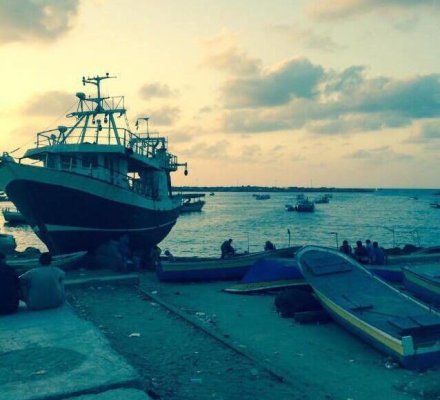 Zaky has eight children, four of whom are sons and fishermen. Sipping a little coffee with his right hand and wiping away his sweat with his left, he started telling Abdul Latif’s story.
Zaky has eight children, four of whom are sons and fishermen. Sipping a little coffee with his right hand and wiping away his sweat with his left, he started telling Abdul Latif’s story.
“A year ago, Abdul Latif was fishing near Al-Waha, a region near the northern beach of Gaza, and he caught a tremendous number of fish. He was so happy he didn’t realize he was crossing the border line between Israel and Gaza!”
I held my breath, anticipating what would come next.
“As soon as my son saw the Israeli cruiser approaching like a storm, he started to paddle his small boat,” Zaky recounted.
I looked at Abdul Latif, who was sweating as if what his father described was happening in front of him. I turned back to Zaky, who took a box of Royal cigarettes from his torn right pocket, then lit one with an old lighter; I learned later it had been handed down from his father, who was killed in 1967 by the Israeli occupation forces. Zaky was just 3 years old at the time of his father’s death.
“The Israeli navy started pumping water at his small boat, so it capsized—injuring my son [with a gash to his head],” Zaky resumed,.
The Israeli forces arrested him and seized his boat. Abdul Latif was taken to an unknown place in the city now called Ashdod by Israel, where he was treated and interrogated. One day later, he was sent home through the Israeli crossing called Erez.
In Gaza, the government’s internal security department kept him in custody for about a week to investigate what he had endured and what he may have said. It is not unusual for Israeli “security” officers to try to recruit Palestinians as collaborators.
Abdu Latif finally was allowed to return home, but his boat is still in Israel until today.
About a year later, Zaky and his family lost a second fishing boat when another son, Zayed, was fishing with his friend, Mahmoud Bakr.
“Together, they had a good day of fishing; the Israelis had just decided that week to increase the fishing zone (from six miles) to nine,” Zaky explained, taking a last drag on his cigarette before throwing it down and stamping it with his black sandal.
I wanted Abdul Latif to join the conversation, so I asked him when this incident occurred. He was hesitant to talk, but then told me it was April 2016.
Zaky continued: “The Israeli army attacked their boat and arrested Zayed and Mahmoud. Their boats were stolen and they were kept in prison for three months.”
I stared at Zaky in disbelief.
“The Israeli authorities accused the two boys of attacking the army in the sea,” he continued. “An Israeli judge asked for proof, in the form of video footage from the camera installed on the cruiser. The footage was brought in and the judge found nothing that documented the accusations against them, so the two boys were finally released.”
However, Zayed’s boat was never returned.
I urged Zaki to buy a new boat to join his sons’ last remaining vessel. He laughed bitterly, telling me that one small boat costs about 30,000 shekels ($8,500).
“Even if I get a boat from a humanitarian organization, I cannot work anymore,” he said flatly.
I asked him why, since he is still young and his children can help. He remained silent for five seconds, then told me he had been injured himself by the Israeli navy when his boat was attacked, and that bullet fragments are lodged inside his body.
“The fragments hurt so much when the weather gets cool,” he groaned.
I realized then what it means to be a Palestinian fisherman living in the Gaza Strip, spending nights and early mornings being chased by the Israeli navy and afternoons knitting his tattered nets.
I decided to try one last time to persuade Abdul Latif to talk. Soon I learned he has been engaged for a year and a half and cannot marry due to lack of money. The entire family—Zaky and his wife, his unmarried daughter, his four sons and three daughters-in-law—lives together in one apartment that is barely fit for animals. The daily electricity blackouts seem to be an omen for a bleak, unknown future.
A family of fishermen – minus one
By Leen Abu Said, in Gaza. This article is from our partners at We Are Not Numbers.
 Solidarity with Gaza fishers is proud to introduce an ongoing series featuring the work of these young Palestinian journalists.Majed Bakr and his granddaughter [photo by Ezz Al Zanoon]
Solidarity with Gaza fishers is proud to introduce an ongoing series featuring the work of these young Palestinian journalists.Majed Bakr and his granddaughter [photo by Ezz Al Zanoon]
On May 15, 2017, Israeli naval forces shot dead a young fisherman from Gaza while he was in his boat. Below is an interview with Majed Bakr, the father of the victim—also a fisherman from Gaza and a member of the family of the four little Bakr boys killed by an Israeli missile while playing on the beach in 2014.
Could you introduce yourself to my readers?
Majed: My name is Majed Bakr. My four sons and I have suffered due to Israel’s [restrictions on our livelihood] since 2012 [when the first of the attacks on our boat occurred] until the 15th of May of this year. As our ability to fish becomes more complicated, each day becomes another day of suffering for us. [Note: For so-called “security” reasons, the Israeli military prohibits boats from Gaza from sailing out more than three to 9 nautical miles, depending on their whim. However, the best fish are found 11 or more miles out.]
What happened on the 15th of May?
Majed: As usual, my sons Omran, Fadi, Saddam and Mohammed sailed out to sea to fish. This is how we make a living. They were 400 meters away from the Israeli-imposed nine-nautical-mile limit. Suddenly, an Israeli patrol boat started shooting live bullets at their boat. One of them hit my son, Mohammed, in his heart. Obviously, the others who were with him are not doctors and couldn’t save his life. They shouted to get urgent help. He was already vomiting blood and his heart had swelled like a balloon by the time the Israeli navy came to take him to a hospital in Majdal, a city in occupied Palestine.
If they wanted to save him, then why did they shoot at him in the first place?
Majed: This is their policy: to ruin with the right hand, then to fix with the left. Therefore, their position looks as if it’s legal and humanitarian internationally. (Majed heaves a deep sigh.) And he died.
I’m sorry.
(Long silence.)
How old was he?
Majed: He was born on the 19th of February in 1992, and he died on the 15th of May. He was 25 years old. He has two daughters: Joud, 3 years old, and Majeda 10 months. On the day of the funeral, Joud saw his father’s dead body and said, “Dad is asleep. He went to the sea. He is not back yet.”
Do you still sail now?
Majed: I sail every day with my sons. I am a 57-year-old man and this is my life. But then one day, I said to Omran, “Son, you all are young men now. You can depend on yourselves.” Four days later, they went fishing without me and the accident happened. The Israeli navy boat was so fast; it was as if my sons’ boat was not moving. My son told me how Mohammed hugged the motor of the boat so the Israelis would stop shooting, but to no avail. We had taken out the boat as a loan in Mohammed’s name from the FATEN (Palestinian Credit and Development) Association, planning to buy it. But it was shot with seven bullets, and Mohammed died. I wish the boat was gone instead!
Why did they shoot him? Did he exceed the sailing limit?
Majed: A fisherman never intends to exceed the limit, but it happens very easily. The sea is naturally unstable. While a fisherman sails, the current pulls the boat as much as 300 meters in any direction. When we see an Israeli boat, we try to escape quickly. But the Israeli boats are free to shoot at us; sometimes they do, other times they leave us alone. This time, I was not with my sons, but the other times—since 2012—I was.
What else happened during that time?
Majed: Israel has destroyed five of my boats, in 2012, 2013, 2014, 2016 and, now, the fifth one this year. We paid only two months of the loan on the boat. We do not know how we can afford the rest now. It is a loan tied to Mohammed’s soul. (Note: In Islam, the soul is tied by any debts it has in life. When the dead person’s siblings pay his debt, his soul is liberated and becomes free from punishment.)
What does each boat cost?
Majed: It costs at least $10,000. We repaired one of the boats, which was brought back destroyed. That cost us 8,000 NIS [about $2,200].
Does fishing deserve all this sacrifice?
Majed: I adore the sea. Fishing is the profession of my ancestors. If I fish five hours a day, I earn just 30 NIS [$8]. But it’s better than working 12 hours a day as a construction worker and making the same amount. It is enough to live ok in Gaza. Here, even the employer whose daily salary is 400 NIS [$110] is in debt. Each son can never marry and have a family if they live in separate houses. So, with each one of them making 30 NIS, the total allows us to live in one house comfortably and to eat together. Only Allah blesses our days. But our lives are controlled by Israel’s mood.
Why does the fishing limit differ from one time to another?
Majed: The Israelis are not idiots. They know that the area in the sea where there are the most fish is found 11 miles or more from shore. We know this because we fished up to 14 miles before the siege on Gaza began. And not all of Gaza’s sea is open even up to 9 miles. They also prevent us from fishing in the entire sea during the reproduction season.
The fish usually stay in calm waters. So, we see the fish but we can’t fish. The Israeli navy officers say loudly in Hebrew, “The fish are ours, not yours.” But we never see any Israeli fishermen! Sometimes the Israeli navy uses water cannons to turn the boats of Gaza fishermen upside down, making the motors wet and obstructing the fishing process.
When will these attacks stop?
Majed: They will never stop. We are attacked daily. Since the beginning of the siege until now, I’ve lost six of my friends, and now my son. Mohammed is not the first martyr to the sea, nor will he be the last. Fishermen in Gaza have started losing hope. Some are selling their boats for one-third of their real cost. But we can’t stop fishing. We must go back to the sea to feed the family. To try to live is much better than to die without trying.
How is your family now?
Majed: We are all depressed. My wife wakes up crying and falls asleep crying. Mohammed’s wife can no longer live among us. I, as a man, look strong but my heart is broken. When I used to shout at Mohammed, as his father, his mother would stop me by saying, “When I gave birth to him, I lost my vision [fainted] for two hours.” And now, she loses her vision as she cries for him.
How will you live after this?
Majed: I don’t know exactly. Life is hard. One time, the wives of my sons gave me their wedding jewelry to sell so I could use the money to buy a new boat.
How do you feel now toward the sea?
Majed: I cannot look at it. I want to go to the Gaza port, but when I arrive, I turn around and go back home right away.
I have one last wish: I wish that no one has to bury his son or daughter while he is alive. No one, neither a friend nor an enemy.
A man and his boat
By Tarneem Hammad, in Gaza. This article and the video below (The Sea is our Refuge) are from our partners at We Are Not Numbers.
Solidarity with Gaza fishers is proud to introduce an ongoing series featuring the work of these young Palestinian journalists.
I am Rajab Abu Riyala, a fisherman from an early age. I am in love with fishing and I’d l be lying if I said I would rather do another job. The sea is my “talent” and if you take me out of the sea, just like a fish, I’d die. It’s not because I come from a family of fishermen and fishing is our livelihood, no. It’s because of my love of marine life and sailing. Half of my life was spent on Gaza’s sea and the other half on paying the price of the first half.
At the age of 15, I used to work side by side with my father on his boat while studying for my school exams. When I finished my last year at high school, I wished I to further my studies in university. But the odds were not on my side. My dad was getting older and weaker, so I decided to help him and pursue my passion for fishing.
The first time
One day, at 6 a.m. during a cold winter in 2005, my father and I set out to sea off the coast of Rafah for our morning catch. We remained within the Israeli-imposed 12-nautical-mile limit (today, it is much less), but suddenly we saw an Israeli naval boat heading toward us.
“All fishermen! Stop the boats! I said stop the boats or we’ll open fire!” a soldier on the boat boomed at us through a megaphone.
We stopped our boats and what happened next was very humiliating. The soldiers commanded that we take off our clothes and jump into the water, or we’d be shot. Everyone else did, and were taken out of the water and onto the Israeli naval boat with their hands tied and blindfolded. Then they were subjected to hours of investigation, while their boats were confiscated.
But my father and I refused to take off our clothes and give up our catch. We refused to be taken It was very cold and windy; I was wearing three pairs of socks and a rubber suit, but still it felt like I was freezing my tail off.
Israeli soldiers yelled at my father: “I command you to stop the boat now!” My father kept driving our boat and the Israeli navy followed us until our boats crashed. The Israeli soldiers opened fire and I fell off of our boat into the sea. My father managed to pick me up out of the water, and I lay there in pain while still hearing the shots of the Israeli soldiers.
Then the pain worsened and I began screaming, while holding my hands to my chest. My father ripped apart my clothes and found a bullet hit my chest. Words cannot describe the way my father felt or even looked. All I can say is that he flew into a rage and began shouting and throwing stones at the Israeli soldiers while they were still shooting. My father turned on the boat again and the Israeli boat chased us for five kilometers. However, you can’t race a father running for the life of his son.
My dad managed to reach the shore and rush me to Al-Aqsa hospital in Deir Albalah, where I was immediately rushed to the operating room. Doctors removed the bullet and said I was lucky because the injury had penetrated all the way through but failed to puncture my heart. I believe I was lucky because I had a very old but very brave man at my back: my dad my hero.
I fully recovered after two months of medicine and treatment.
The second time
That is, until a few months later. This time, the allowed fishing distance was only nine nautical miles, but I remained within the limit. I was with three other boats in the sea off of Khan Younis. Again, an Israeli naval boat stopped us, commanding us to take off our clothes and jump into the water. One of our crews followed the order, but when it was my turn to do so, I remembered my father’s example. (I was in charge that day, since my dad was too ill to sail with me.) I said, “NO!” It was impossible for me to let all of our sweat and fatigue be in vain. There was no way I would return home empty-handed. So, I continued sailing and the Israeli soldiers chased me, firing toward my boat for 15 minutes until I reached Gaza. But then, all of the sudden, a bullet made it to my knee.
I felt nothing at first, but I saw blood inside my boat. I thoroughly examined myself for any injuries and I saw the wound in my right knee. I turned off the engine and stopped; I could see the shore, but the Israeli soldiers boarded and took me to their boat. A doctor on board bandaged my leg and gave me some pills, which at first I refused to take. But he said it would ease my pain until we get to a hospital, so I did. He was wrong, because the pills eased nothing and I screamed all the way to the occupied town of Asdud (a trip of 42 kilometers).
We finally reached a hospital at 7 a.m., but they chose to leave me bleeding until 5 p.m.
I could take it no more and I shouted, “If you’re going to leave me bleeding, let me go back to Gaza to be treated.” The staff put a splint on my knee, with the bullet still inside, then took me in a jeep to the Erez crossing. From there, I was transferred to Al-Shifa hospital in Gaza City. Doctors there finally removed the bullet and I recovered after five months of treatment. However, I still have some shrapnel inside. I can’t stand the pain in winter, and I limp when it rains.
The last time
On January 3 of this year, there was another incident. Now we were down to an allowance of six nautical miles. I was 10 kilometers away from the 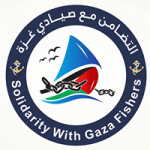 Gaza shore and my boat was filled with fish; I was overwhelmed with joy that my long hours of fishing had borne fruit. I wanted to get to land quickly to sell my catch. But then some Israeli naval boats—small, but very fast–surrounded mine and started to haphazardly shoot both live and rubber-coated steel bullets. I felt four rubber bullets graze my back; it was impossible to protect my body, because they were shooting like crazy. I only wanted to protect my face and not lose consciousness. I grabbed an empty fish box and held it in front my face, but the boat rolled and I lost balance. The box fell and I caught a bullet in my right eye.
Gaza shore and my boat was filled with fish; I was overwhelmed with joy that my long hours of fishing had borne fruit. I wanted to get to land quickly to sell my catch. But then some Israeli naval boats—small, but very fast–surrounded mine and started to haphazardly shoot both live and rubber-coated steel bullets. I felt four rubber bullets graze my back; it was impossible to protect my body, because they were shooting like crazy. I only wanted to protect my face and not lose consciousness. I grabbed an empty fish box and held it in front my face, but the boat rolled and I lost balance. The box fell and I caught a bullet in my right eye.
Two days later, I woke up in an Israeli hospital. I was told that the bone under my eye was broken, my retina was destroyed and my sinuses also were damaged. But I only wanted to know if I’d be able to see after the gauze was removed. My sight is all I have.
I wanted to call my parents and I wanted to cry an ocean of tears from my one good eye. I begged for seven days to be allowed to call my parents, but I was never permitted to do so. I felt so lonely and weak. After the seventh day, Israeli soldiers transferred me to Erez crossing. There, the Hamas government forced me to stay for an investigation into what had happened that lasted the whole night. (This is normal procedure, since Israel tries to force fishermen to divulge information about the resistance in the Gaza Strip or, even worse, to become spies,)
I have one wish: Give me back my boat. It’s not just a boat to me. It’s my whole life. I spent three years building it piece by piece. I bought the fiberglass and made it with my own hands. It was very fast and strong. I made it to last forever; my wife sold her jewelry so I could finish building and we could live happily ever after. My dream cost me $12,000 and I achieved it, but the Israeli occupation stole it from me.
It’s just a dream now. Without my boat, I can’t work anymore. These days, I’m not able to afford my rent, but the landlord is patient with me. I’m 30 years and I have three children and the fourth is on its way. I love my children and I’m ready to go back to the sea over and over just to draw a smile on their faces. Just give back my life…Give back my boat.
Note: Rajab no longer sees from his right eye. You can help him and others by supporting the Solidarity with Gaza Fishers campaign, a project of the Freedom Flotilla.

